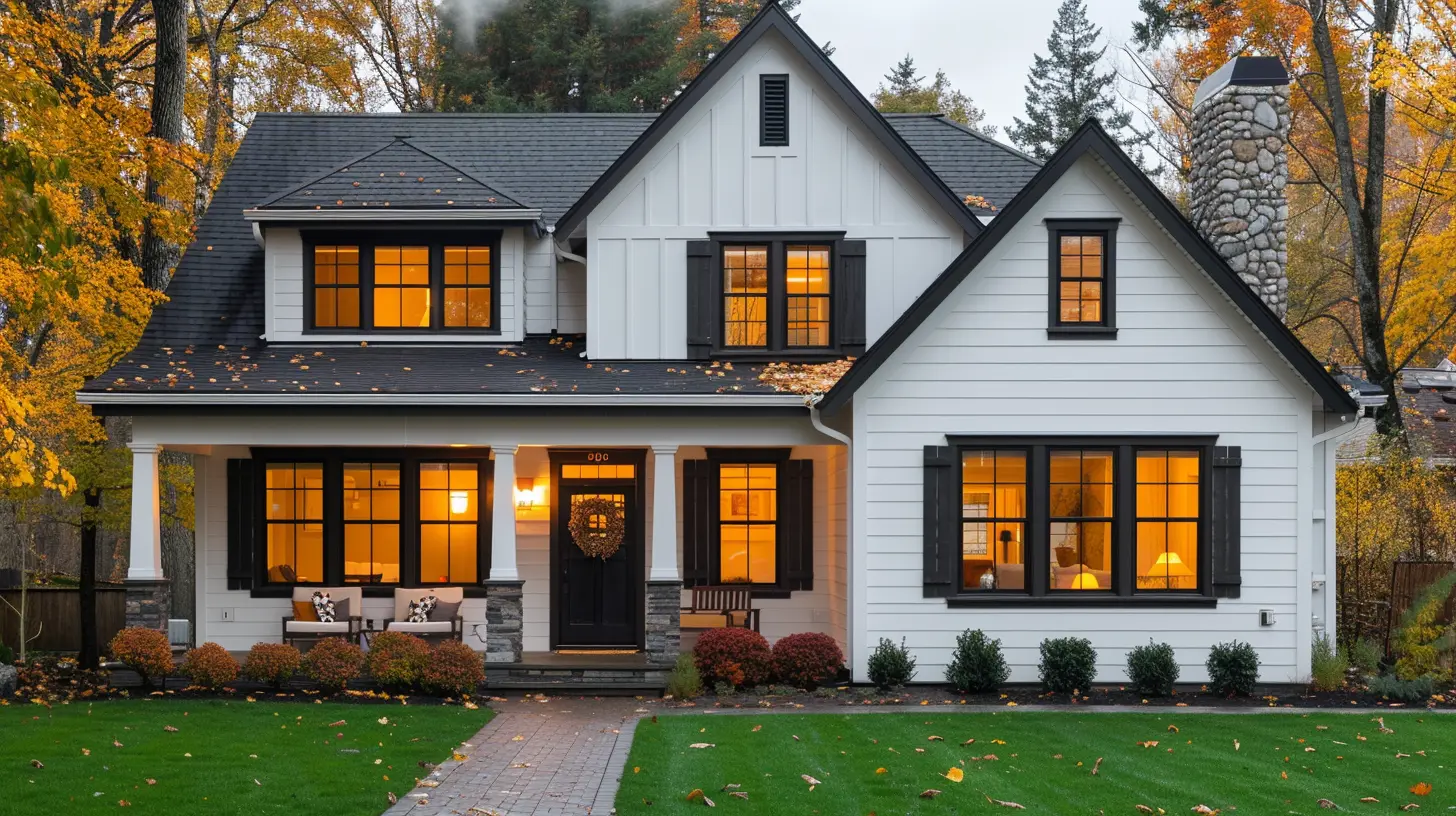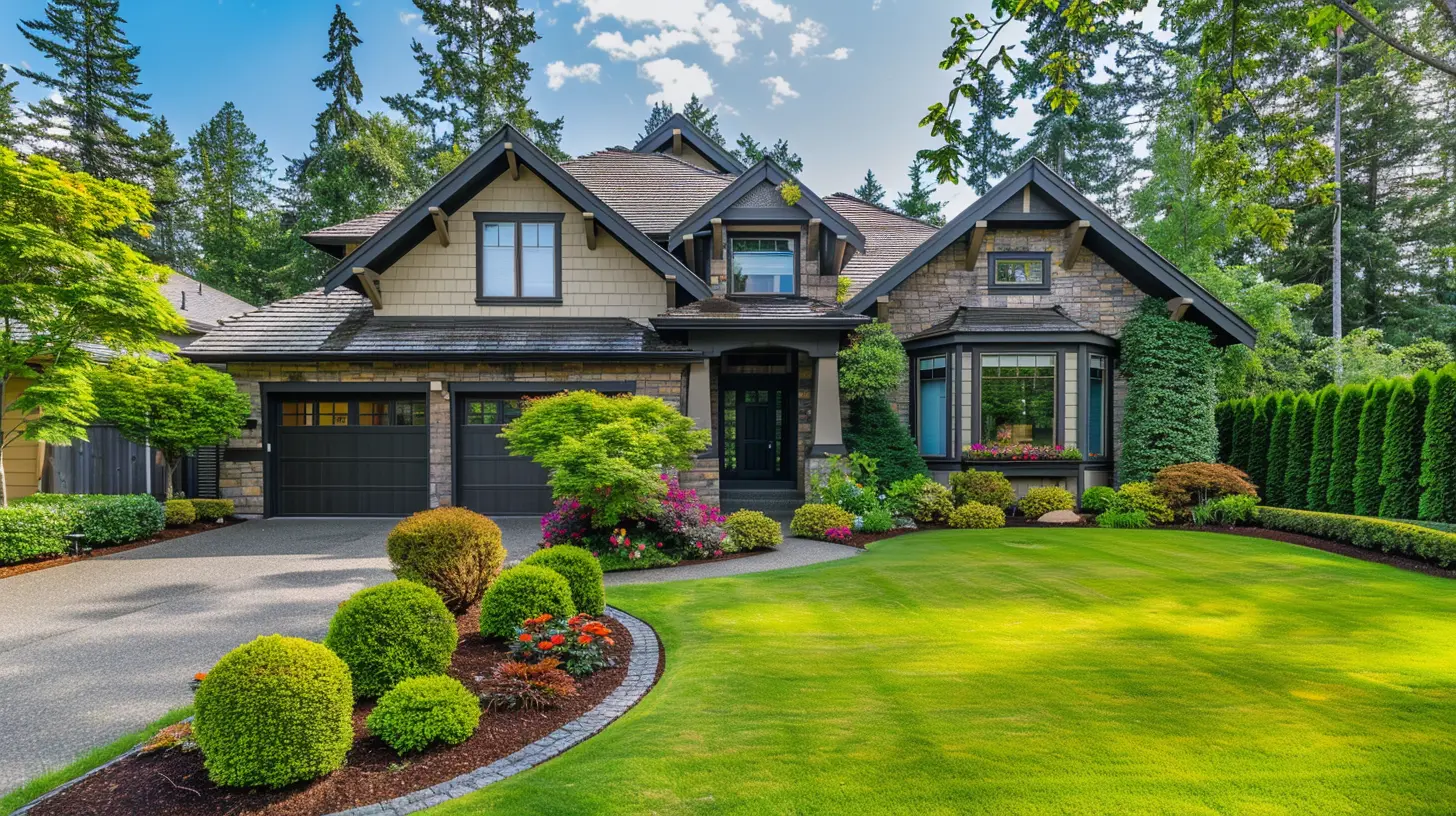Capital Gains and the Sale of Your Primary Residence: Key Points
12 September 2025
Selling your home can be a bittersweet moment—exciting because you're turning over a new leaf, maybe upgrading or downsizing, but also nerve-wracking because of the financial implications. One of the biggest questions people have when selling their primary residence, especially if they’ve made a tidy profit, is: “Do I have to pay capital gains tax on this?”
Well, buckle up, because we’re diving deep into what capital gains are, how they apply to your primary residence, and what key points you need to know to save money and avoid nasty surprises from the IRS.
What Is a Capital Gain, Anyway?
Let’s start with the basics. Just imagine you bought your house a few years ago for $250,000, and now you’re selling it for $400,000. That $150,000 difference? That’s your capital gain.A capital gain is the profit you make from selling an asset—like a house or stock—at a higher price than you paid for it. Simple enough, right? But when it comes to your primary residence, the IRS treats it a bit differently than other investments.
The Capital Gains Exclusion: Your Home Might Be Tax-Free
Here’s the good news: you might not owe any tax at all on that capital gain. Thanks to the IRS’s capital gains exclusion for primary residences, you could exclude up to:- $250,000 of gain if you’re single
- $500,000 if you’re married and filing jointly
Pretty generous, isn’t it?
So, Do You Qualify?
Not everyone gets to walk away tax-free. Uncle Sam has some boxes you need to check first. Here’s the checklist:1. You Owned the Home for at Least 2 Years
You must have owned the home for at least two years in the five-year period before selling it. Pretty straightforward.2. You Lived in It as Your Primary Residence
You also need to have lived in the home as your main residence for at least two of the past five years. These don’t have to be consecutive years, but it does need to add up to a full 24 months.3. You Haven’t Used the Exclusion Recently
If you claimed the capital gains exclusion on another home sale within the last two years, you won’t be eligible to claim it again. The IRS wants to avoid people flipping houses and constantly dodging taxes.
What If You Don’t Meet the Requirements?
Maybe you only lived in the house for a year before you had to move. Or you sold another home a year ago and already used the exclusion. Don’t panic—it’s not necessarily a total loss.You could still qualify for a partial exclusion if you sold your home due to certain circumstances like:
- A job relocation
- A health issue
- Other unforeseen circumstances (like a pandemic, just saying…)
The IRS might let you exclude a pro-rated amount of the gain based on how long you lived there.
How Do You Calculate Capital Gains on a Home Sale?
Okay, so you’re selling your place and wondering—you’ve got this big fat check coming, but how much of it is actually taxable?It’s not as simple as subtracting what you paid from what you sold it for. Here's what you need to do:
Step 1: Determine Your "Adjusted Basis"
Your adjusted basis is basically what you paid for the home, including certain costs and improvements. Think:- Original purchase price
- Closing costs when you bought
- Major home improvements (think kitchen renovations, a new roof, etc.)
So, if you bought your home for $250,000 and later spent $30,000 on major upgrades, your adjusted basis could be $280,000.
Step 2: Calculate the Selling Price Minus Costs
Your net selling price is the sale price minus selling expenses, such as:- Realtor commissions
- Legal fees
- Closing costs
If you sold the home for $400,000 and paid $20,000 in selling costs, you’re really netting $380,000.
Step 3: Subtract Adjusted Basis from Net Selling Price
$380,000 (net price) - $280,000 (adjusted basis) = $100,000 capital gainIf you're single, boom—that falls under the $250,000 exclusion. You owe zero taxes. If you’re married filing jointly, you’re even better off.
What Counts as a Primary Residence?
You might have multiple homes—a beach house, a city condo, a cabin in the woods. So which one is considered your primary residence?Generally, it’s the place where you:
- Spend most of your time
- List as your address on tax returns and your driver’s license
- Receive mail and bills
If you’re being audited, the IRS will look at all of these signs to determine where you actually live.
Common Mistakes People Make (Don't Be That Person)
Let’s cover some frequent slip-ups you’ll want to avoid:❌ Not Keeping Receipts for Home Improvements
Want to increase your adjusted basis (and lower your taxable gain)? You better keep records of every major upgrade. No paperwork = no proof.❌ Assuming Every Sale Is Tax-Free
Yes, many home sales fall under the exclusion, but not all of them. If you’re going through a divorce, selling after a few months, or moving abroad, you might not qualify.❌ Forgetting About Depreciation Recapture
If you used part of your home for business (hello, home office deduction), and depreciated that part, the IRS will make you “recapture” that depreciation when you sell. That means paying tax on it. Ouch.What About State Taxes?
We’ve focused mostly on federal capital gains taxes, but don't forget your state might want a cut of the profits too.Each state plays by its own rules. Some, like Texas or Florida, don’t have a personal income tax, so you’re in the clear. Others, like California or New York, will want their slice. So always check your local tax laws.
Selling After Death? Inherited Homes and Step-Up Basis
This one's for the heirs out there. If you inherited a home and are now selling it, you may get what’s called a step-up in basis.Let’s say your parents bought a house for $150,000, and when they passed away, the home was worth $450,000. That becomes your new basis. If you sell it shortly after for $455,000, your capital gain is only $5,000—not $305,000. Big difference, right?
Using a 1031 Exchange? Not for Primary Homes
Some folks think they can use a 1031 Exchange to defer taxes by rolling the profits from one home into another. Here’s the deal: 1031 Exchanges apply to investment properties, not primary residences. Trying to game the system here could land you in hot water.What If You Sell and Then Buy a New Home?
There’s a common myth out there that if you use the proceeds from your sale to buy another home, you don’t pay taxes. Yep, that used to be the case before 1997. But those rules are gone.Now, it doesn’t matter what you do with the money—you could buy a new home, go on a luxury cruise, or stash it in your savings. The tax treatment is based solely on your gain and whether you qualify for the exclusion.
Final Thoughts: Keep It Smart, Keep It Legal
Selling your home is already an emotional rollercoaster. Taxes don’t have to be another loop-de-loop. With a little planning and a good understanding of the capital gains exclusion rules, you can keep more of your profit in your pocket where it belongs.So, before you slap that “For Sale” sign in the front yard, take a few minutes to run the numbers, check your dates, and get your documents in order. It’s the difference between a surprise tax bill and a tax-free payday.
Quick FAQs
Q: Do I have to pay capital gains tax if I sell my home?A: Maybe. But if it’s your primary residence and you meet the IRS rules, you might be able to exclude up to $250,000 (or $500,000 if married).
Q: What if I only lived in the house for a year?
A: You might still qualify for a partial exclusion if you had to move for job, health, or unexpected reasons.
Q: Can I deduct home improvements from my gain?
A: Yes, if they’re major and add value. Just keep your receipts!
Q: What if I turned part of my home into a rental or business?
A: You may need to pay depreciation recapture on the portion used for rental/business purposes.
all images in this post were generated using AI tools
Category:
Capital GainsAuthor:

Knight Barrett
Discussion
rate this article
1 comments
Phoebe Kirkland
This article expertly highlights essential aspects of capital gains on your primary residence. Understanding these key points is vital for smart financial decisions. Don’t underestimate the impact of tax implications when selling your home—be informed and proactive!
September 15, 2025 at 12:42 PM

Knight Barrett
Thank you for your insights! Understanding capital gains and their tax implications is crucial for making informed decisions when selling a home. I'm glad you found the article helpful!


